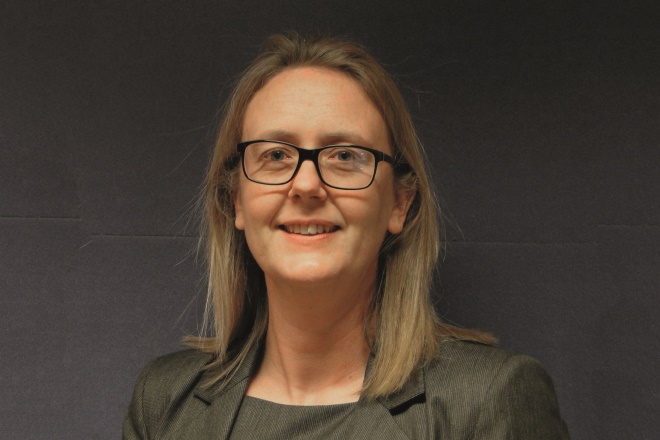
Shutterstock.com
Many pharmacy students think about a career in the pharmaceutical industry at some point during their time in university. Who would not want to be the person who discovered the next wonder drug?
However, not many put that consideration into practice — mainly because, with opportunities being comparatively limited, competition for places is high. So what can trainees expect to learn from an industrial pharmacy preregistration placement? And what do employers look for when positions are advertised?
Experiencing manufacturing
Charlie Winter, a PhD student at Imperial College London, completed six months of his preregistration year working for GSK. “I worked in manufacturing where medicines are produced to meet global demand,” he explained. “Specifically, I assisted in a production change aimed at improving manufacturing efficiency.” He had previously completed a summer placement doing a formulation development project for AstraZeneca.
You get to work with people from lots of different disciplines — such as process engineers, statisticians and chemists
“The experience gave me an understanding of the roles that pharmacists have within industry,” he adds. “They work in all areas and you soon recognise that the skills you develop during preregistration training are adaptable to many different roles.
“You get to work with people from lots of different disciplines — such as process engineers, statisticians [and] chemists — and it’s great to be involved with such interdisciplinary working.
“Communication skills are essential because you need to be able to communicate with large teams from all over the world and this includes some logistic planning, like considering the times zones of other members of the team.”
After completing his training, Winter opted to maintain a research focus so is currently undertaking a PhD, sponsored by GSK, looking at how biomaterials can aid the repair of damaged cardiac tissue.
Managing supply for clinical studies
For six months during 2016, Eunyoung Lee completed the second half of her preregistration year working as a supply chain study lead at GSK, where she managed the supply of investigational medicinal products for several clinical trials. “The role involves getting a forecast for the demand for a clinical trial medicine, and then liaising with several departments within the company to ensure that sufficient supply is available to meet the actual demand at each trial site.” This task, she explains, is not as simple as it sounds.

Source: Courtesy of Eunyoung Lee
Eunyoung Lee is clinical development manager at GSK.
“Every day was challenging. Plans often changed so I needed regular updates about demand. For example, a clinical team might plan to recruit an additional two patients to a trial in a given month but then recruit 10. Alternatively, the dosing levels for a drug may change during a study or, occasionally, a product recall might be necessary.”
As well as developing time management, communication and leadership skills, and giving her frequent opportunities to exercise her problem-solving skills, Lee believes the role taught her to be assertive: “I needed to be clear about which demands could and couldn’t be met by the other departments within the company — and would occasionally need to stand my ground when team members expected timelines that couldn’t be delivered.”
One of Lee’s biggest achievements during her time was to implement a standard operating procedure for the compassionate use of drugs — the supply of medicines free to patients with difficult-to-treat diseases outside a clinical trial. “This issue is important to me,” she says. “To know that I implemented something that directly helps people in need is hugely rewarding.”
After completing her preregistration year, Lee accepted a position within GSK as a supply chain study lead. She has subsequently been promoted to a clinical development manager, overseeing the entire process of conducting a clinical trial.
Developing theoretical and practical skills
Dan Greenwood, a pharmacist and research student at the University of Manchester, spent six months of his preregistration year at Merck Sharp and Dohme. During this time he worked on two main projects: one was laboratory based — looking at solid dose formulations — and the other was desk based — reviewing the methodology of first-in-human oncology clinical trials. His work on the latter was subsequently published in the International Journal of Clinical Trials.

Source: Courtesy of Dan Greenwood
Dan Greenwood is a pharmacist and research student at the University of Manchester.
“Working in the pharmaceutical industry is hugely different to working in a hospital,” said Greenwood, who also spent six months at Guys and St Thomas’ Hospital in London during his preregistration year. “It was great to experience what it’s like to work for a large multinational company.”
The experience allowed me to apply myself to different subjects at short notice.
Staying on track
Time management skills are thoroughly tested during industrial pharmacy training. “One of the main challenges comes from meeting the clinical competencies of the preregistration year,” says Winter. “You only spend six months in hospital so you need to be focused.”
Greenwood agrees: “Being involved in two large projects meant that time management was the biggest challenge. It takes time to determine how long things will take to complete — particularly when you are relying on other people. However, doing so has meant that I have developed my project management skills.
“The experience allowed me to apply myself to different subjects at short notice. I found that I enjoyed applying knowledge and becoming a producer of knowledge, rather than being a gatherer of knowledge.”
Getting summer experience
Arthur Michaud, a formulation scientist for GSK who is currently on the company’s in-house graduate scheme, completed two summer placements during his pharmacy degree — which helped prepare him for preregistration applications. “I always wanted to work in industry and my aim, during university, was to get a preregistration place within industrial pharmacy,” he explains.

Source: Courtesy of Arthur Michaud
Arthur Michaud is a formulation scientist for GSK.
During the summer of his second year, he completed an eight-week paid internship for Novartis in Belgium where he worked in quality control and used high-performance liquid chromatography (HPLC) to analyse manufactured eye care products. “The experience taught me about the principles of [good manufacturing practice], gave me experience of audit trails and made me proficient at using HPLC.”
During the summer of his third year, he worked for three months at the University of Nottingham as a research assistant, helping to create suitable conditions for an enzyme to crystallise. This experience, he says, gave him more general laboratory experience, including teaching him how to plan experiments and analyse results. “Getting up to speed with the literature relating to this work was one of the biggest challenges,” he explains. “It also involves more down time because, once you’ve set up an experiment, you might have a four-hour wait before it’s completed. This forced me to think about how I could use my time most efficiently.”
What employers want
Having some industry experience is one way to make yourself a more appealing potential employee to a pharmaceutical company — but what else do employers look for? “The main attribute we look for in applicants is enthusiasm and clarity that they want to work in industry long term, rather than those who just apply because it is an option for employment,” suggests Michaud, who has been involved in employing preregistration trainees since he qualified. “Do your research about the company and determine what you want to get from the experience and what you might be able to do for them. It is also useful to gain some hospital pharmacy experience because half of the preregistration year involves a hospital placement.
Candidates must demonstrate technical competence, compelling communication skills and proven problem-solving abilities
“We look for a minimum grade at degree level but, beyond that, we wouldn’t necessarily select a candidate with a 1st over someone with a 2:1,” he adds. “We are more interested in someone who shows enthusiasm for extra-curricular activities, such as involvement with university societies.”
Katherine Barclay, director of academic liaison for Pfizer UK, said: “What differentiates the successful students is their depth of experience and strong motivation for the placement for which they have applied.
“During the interview, candidates must demonstrate technical competence, compelling communication skills and proven problem-solving abilities, as well as the ability to work as an integral member of a multi-disciplinary team.”

Source: Pfizer UK
Katherine Barclay is director of academic liaison for Pfizer UK.
Winter adds the following advice for those who are interested in an industrial pharmacy career: “You need to persevere because there are not a lot of places available. You need to make your CV as attractive as possible so make sure you’re involved with plenty of extracurricular activities and make the most of any opportunities to get involved with research projects within your university.”
Industrial preregistration employers
AstraZeneca
AstraZeneca offers two preregistration training positions each year in collaboration with University Hospital of South Manchester NHS Foundation Trust. The six months in industry is based in pharmaceutical development in Macclesfield. The trainees are selected from the pool of pharmacy students who complete a summer placement with the company at the end of their third year.
GSK
GSK offers several preregistration places in collaboration with British hospitals, such as Barts Health NHS Trust, London. The six months in industry can involve working in areas such as formulation design, clinical trials or manufacturing.
Pfizer
Pfizer offers one or two preregistration placements each year. Students spend six months with its formulation development team, based at Sandwich, Kent, and six months at Addenbrooke’s Hospital, Cambridge.
Although Pfizer does not have a formal summer placement programme for undergraduates in pharmacy, it has a collaboration with the Department of Pharmacy at King’s College, London, which sees three MPharm students undertake a three-month laboratory-based placement during the fourth quarter of each year. It also collaborates with several universities to help provide PhD training. For formulation design, it partners with University College London and the University of Nottingham. The company offers postgraduates, as part of their first year, a couple of three-month lab-based projects at Sandwich.
Bristol Myers-Squibb
Placements are available to pharmacy undergraduate students at the company’s drug product science and technology department in Moreton, Wirral. Requests for placements and work experience are considered on a case-by-case basis.


